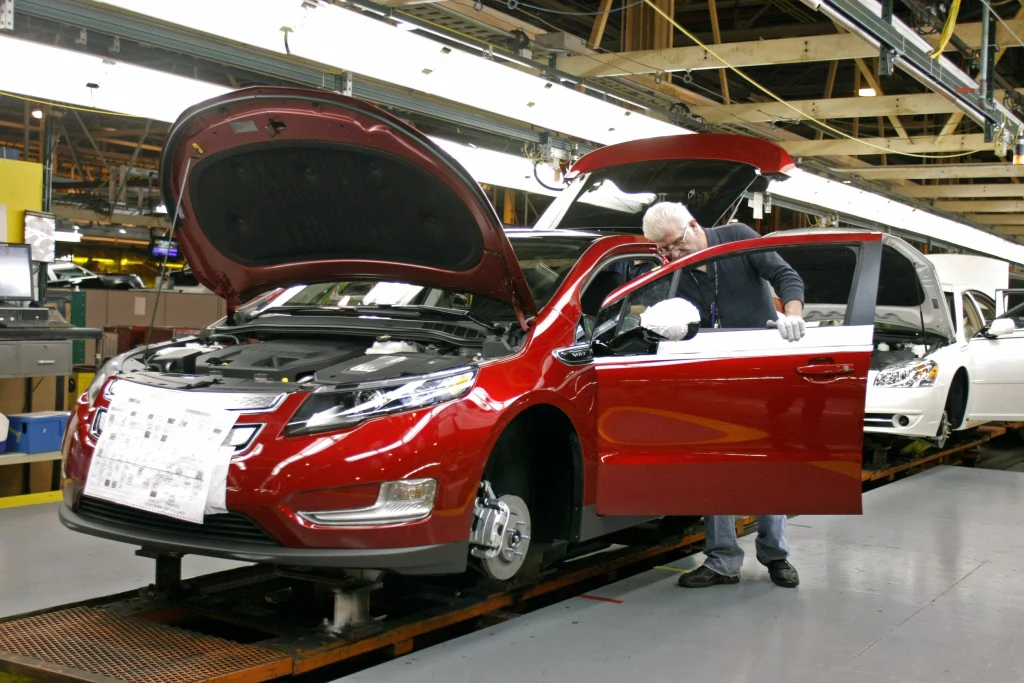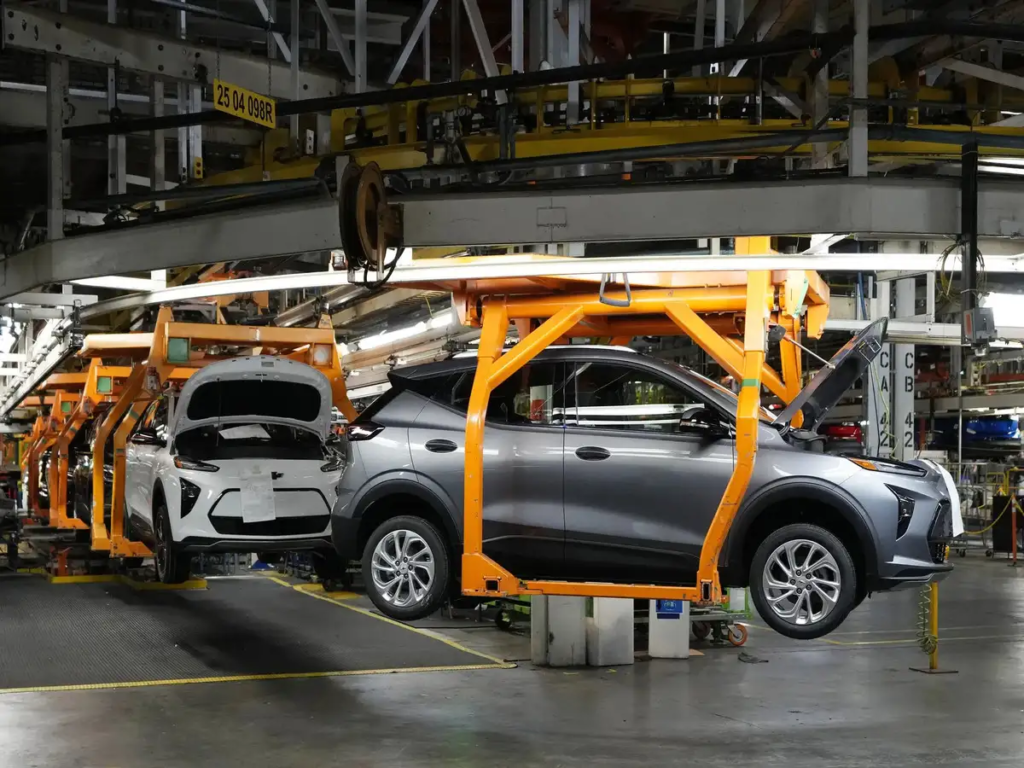General Motors (GM), one of America’s biggest automakers, is stepping back from some of its electric vehicle (EV) ambitions—at least for now. While the company still plans to launch its much-awaited electric pickup trucks and a new version of the Chevrolet Bolt, GM is now putting more money into building gas-powered vehicles.
This decision shows a strategic pivot as the auto industry grapples with slowing EV demand, rising production costs, and consumer hesitancy about making the switch to electric. According to reports, GM will redirect billions of dollars that were previously meant for EV expansion into its more profitable gasoline vehicle lineup. At the same time, the company says it’s not giving up on its EV future—just pushing some of those plans further out. You can read GM’s full statement here.
Why General Motors Is Redirecting EV Funds to Gas Cars
This move comes after months of challenges in the EV market, including slowing consumer demand, especially outside of urban areas, high costs of EV batteries and raw materials, limited charging infrastructure, and increased competition from other automakers and Tesla. GM’s CEO Mary Barra said in a recent investor call that the company is being “flexible” and “practical” in its approach.

She noted that while GM remains committed to a zero-emissions future, the timeline needs to align with what consumers actually want and can afford today. “We’re adjusting to meet customers where they are,” Barra said. “Our focus is on profitability, not just speed.” The decision impacts several planned EV models that have now been delayed or scrapped, including luxury or lower-demand vehicles. GM will instead focus on core gas models, especially SUVs and trucks that continue to sell well across the U.S.
Next-Gen Chevrolet Bolt Still on Track
Even with this EV slowdown, not all electric plans are off the table. GM confirmed that it will continue development of its next-generation Chevrolet Bolt, one of the company’s most popular EVs.
The new Bolt will feature upgraded battery technology, better range, and a lower cost of production, making it an affordable option for mainstream buyers. The Chevrolet Bolt remains a symbol of GM’s EV strategy because it caters to budget-conscious customers and has received positive feedback on performance and reliability. The next-gen Bolt is expected to roll out in late 2025 or early 2026.
GM also reaffirmed that electric Silverado and GMC Sierra pickup trucks are still part of its roadmap, especially with growing demand in commercial fleets and environmentally conscious buyers. More details on the Chevrolet Bolt can be found here.
Market Realities Behind GM’s Decision
Many experts believe GM’s move reflects broader market conditions. The growth of EV sales has slowed significantly in the past year, especially in the U.S. The initial wave of early adopters has plateaued, and mainstream buyers remain cautious due to high upfront costs and charging limitations.
According to Cox Automotive, EVs made up about 8% of all vehicle sales in the U.S. in early 2025—a number that has grown but not fast enough to justify aggressive investment from every automaker. Another challenge is price wars, mainly triggered by Tesla, which has slashed the prices of its models multiple times to boost sales. These cuts have pressured competitors, including GM, to lower prices as well, reducing profits.
A Balancing Act: GM’s Two-Track Strategy
GM appears to be adopting a two-track strategy—continuing to build EVs while strengthening its gas-powered lineup. This balanced approach allows the company to meet short-term financial goals while preparing for the long-term shift to cleaner transportation. In recent months, GM has made it clear that profitability comes first.

Investors have applauded the company’s decision to slow down EV spending as GM’s shares have seen modest gains since the announcement. Despite the slowdown, GM says it remains on track to meet its climate goals, which include becoming a fully electric brand by 2035. However, industry experts now believe that this timeline could be pushed back depending on global market trends, battery innovation, and government incentives.
Industry Reactions and Future Outlook
The auto industry is watching GM closely, as this decision could influence other automakers. Ford, for example, has also slowed down some of its EV investments and has chosen to keep hybrid and gas-powered options alive.
Environmental groups have expressed disappointment, saying that slowing down on EVs may harm the fight against climate change. However, GM insists that this is just a “temporary recalibration” rather than a reversal of its green goals. For now, GM’s ability to deliver profitable vehicles in both the gas and electric segments will determine its future success.
What This Means for Consumers
For customers, this shift means more options in the short term, especially if they’re not ready for an EV yet. Buyers will continue to see new gas-powered SUVs, trucks, and crossovers, along with gradual introductions of electric models like the Bolt and electric pickups.
This approach could help buyers feel more comfortable making the switch when they’re truly ready, rather than being rushed into a technology they don’t yet fully trust or understand. As GM recalibrates, its competitors and customers will be watching closely. Whether this bet pays off depends on how the market evolves over the next 3 to 5 years. To stay updated on GM’s vehicle lineup and EV announcements, visit GM’s official newsroom.
Also Read – Ford Exec Shocks Fans: Engine Power Is Dead in 2025 Market






